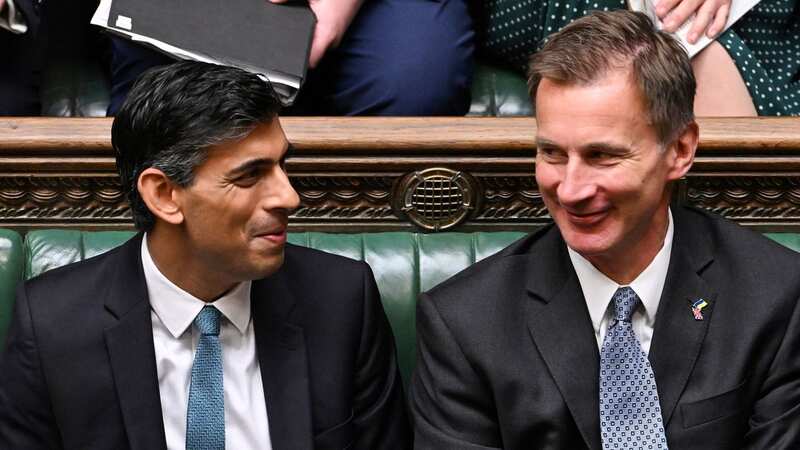'Investing in NHS, schools and high streets would breathe life back into UK'

The Chancellor stood up in the House of Commons and stated that those with the broadest shoulders should pay their fare share.
Yet he delivered a cut and run Budget, knowing his government is trailing in the polls with an election likely to take place later this year. The tax cuts delivered today will spell more agony for public services in the coming years. This is the opposite of what our country needs.
The cost of living crisis is not over but Jeremy Hunt didn’t offer up a serious plan to help people that need it most. We are crying out for sensible and well thought out investment. It’s desperately needed to provide a lifeline to the creaking healthcare system and local councils that are going bust.
Instead, the Chancellor offered up tax cuts that look like an obvious attempt to try and entice voters. Today, he cut a further 2p from National Insurance on top of cuts announced last year. But these tax cuts are poorly targeted and won’t provide enough help to those that need it most.
The average worker will only benefit by £8 per week, a paltry figure compared to the drastic rise in energy bills, food and essentials in the last couple of years. The last time national insurance was cut, only a tiny minority felt like it made a difference to their own finances.
 Teachers, civil servants and train drivers walk out in biggest strike in decade
Teachers, civil servants and train drivers walk out in biggest strike in decade
The wealthiest households will benefit disproportionately from cutting National Insurance. According to economists, the richest 20% of households will get 12 times more than the poorest 20%. The regional inequity is , with those in London and the south-east benefiting the most.
For an average of £8 extra a week today, the country will be served up public spending cuts in years to come. Despite some departments having protected budgets, others will have their spending slashed.
The future will look like less money for local government, stripped back fire and rescue services, and eroded access to legal aid and justice through the courts. Simply put, further cuts will make the UK less safe and less fair.
Despite not meeting the occasion and delivering what was needed, the Chancellor did make a few positive announcements. He scrapped the non-dom tax break that allows some of the super-rich to pay very low levels of tax. This move shows that fairer taxes on the rich are politically possible.
Let’s not forget, the prime minister's own wife has benefitted from this arrangement in recent years. Extending the windfall tax on oil and gas excess profits was another positive step. Giving HMRC more resources to tackle tax dodging is a no-brainer. Recent shows that for every £1 invested in compliance returns £14.
But these measures are a drop in the ocean compared to what our country needs. Investing in our hospitals, schools and high streets would breathe life back into the country. Providing funding to local authorities can avoid them going bankrupt, leading to massive regional shocks that will scar cities and places for years to come.
Both the government and opposition have decried the state of public finances. Making tax fairer so the super-rich and wealthiest companies pay more is a smart solution to raise revenue - and it is wildly popular. Tens of billions of pounds can be raised every single year with just a small number of changes that adjust the balance of tax paid by those with excess wealth.
As the Chancellor said, those with the broadest shoulders should pay their fair share. If they did, we could see this country working properly again.
Read more similar news:
Comments:
comments powered by Disqus

































